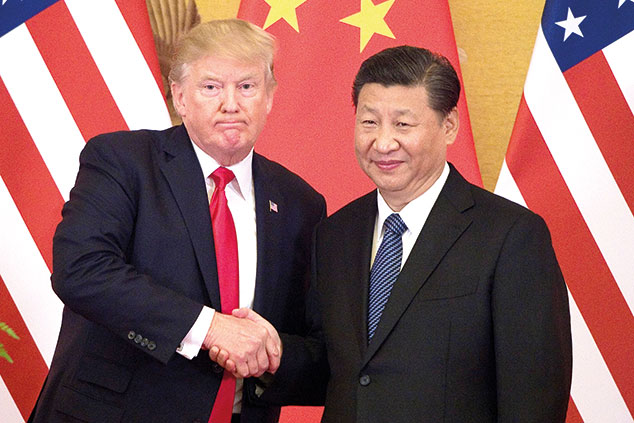
World trade volumes have now shrunk for three consecutive quarters, notes Yasemin Engin of Capital Economics, a consultancy. In August, China’s exports to the US declined by 16% year-on-year, while imports from America fell by 22%. This year is set to be the worst for trade since 2009.
The end of an era
Between 1990 and 2008, global trade rose from 39% to 61% of world GDP. That brought real benefits. The World Bank reports that more than a billion people were lifted out of extreme poverty between 1990 and 2015. The “global poverty rate is now lower than it has ever been in recorded history”. In the developed world, access to cheap Chinese goods has kept living costs low and provided plenty of opportunity for listed businesses to grow.
Yet “from Washington to Buenos Aires”, political commitment to open markets is “disintegrating”, says Greg Ip in The Wall Street Journal. Where the US once supported global institutions such as the World Trade Organisation, now it “leads in crippling them”. That has left investors and businesses scrambling to rearrange their portfolios and is “pushing the global economy closer to recession”.
The ties that bind
Relations between the US and China have undergone a “fundamental reset”, say Andrew Batson and Lance Noble for Gavekal Research. Yet talk of a new Cold War is premature. More than 13% of total US trade is with China and the two economies are “deeply entangled”. While US exports to China have been hit by tariffs, sales by US firms in the Middle Kingdom are more than twice as large and have been unaffected. Many US companies rely on Chinese consumers to drive earnings growth and will thus pressure Washington to take a softer line. The recent opening of China’s financial markets also runs counter to the decoupling trend. Foreigners now hold ¥1.5trn in Chinese equities. US financial institutions will want more access to the world’s second-biggest economy.
Yet even if globalisation is not undone, the new direction of travel is clear. While markets today largely dance to the tune set by Wall Street, decoupling between regions means that future business cycles may become less correlated. That makes geographical diversification more important than ever. Corporate earnings could be another casualty. After years of conquering the world, US companies are now shifting to a “defensive” stance, says Rana Foroohar in the Financial Times. No wonder. As Tooze puts it, the prospect of a world economy divided between a “sclerotic Europe, a nationalist United States and an authoritarian China is a gloomy one”. Investors should be prepared.